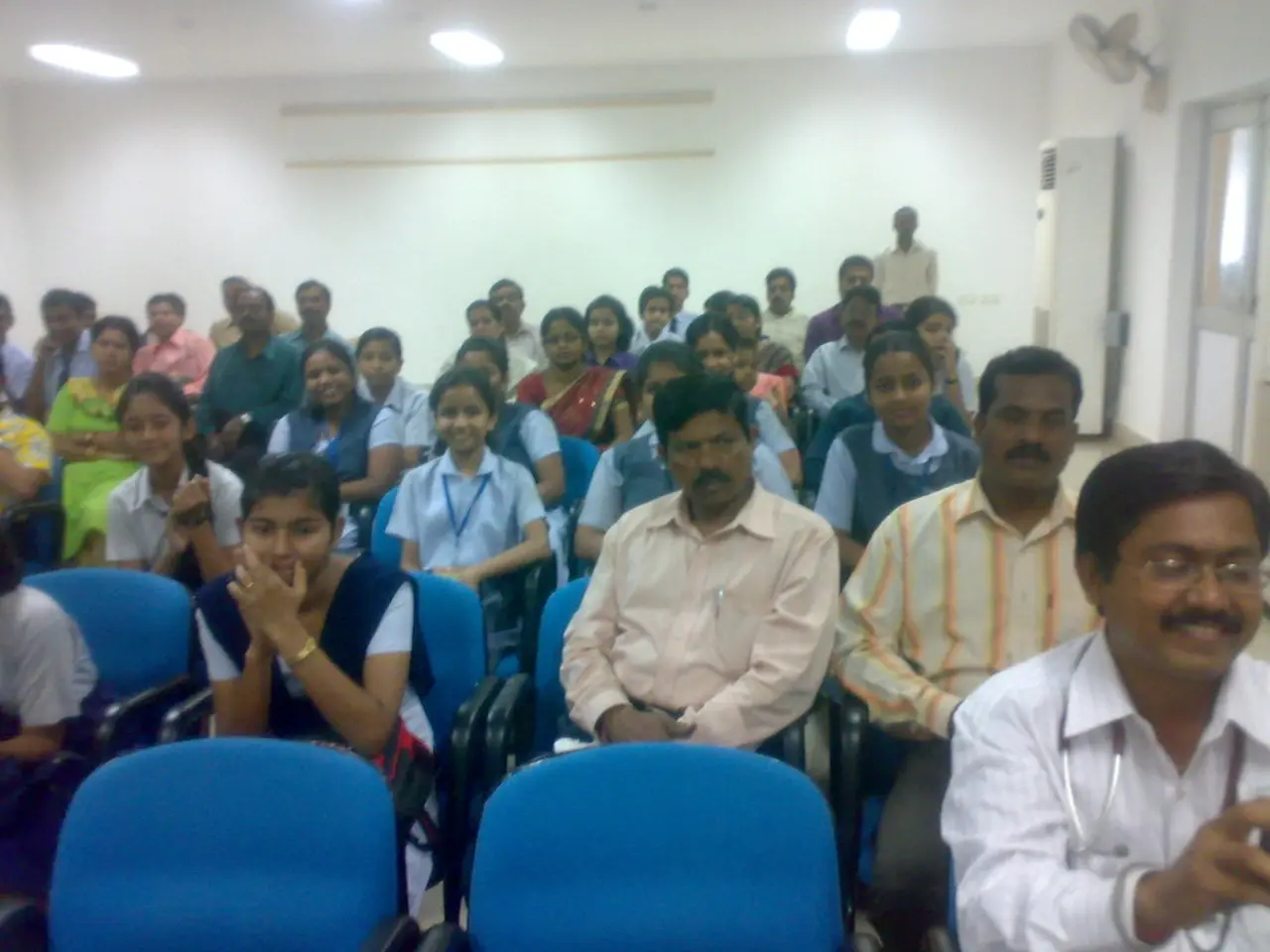Decreased demand for air conditioners observed - Reduced demand for air conditioners observed
In a recent survey conducted by Innofact, it was revealed that the interest in buying air conditioners among Germans has seen a noticeable decline. The survey, which involved over 1,000 Germans aged 18 to 69, found that only 17.9 percent of respondents currently use an air conditioner at home, a figure that is slightly lower compared to last year's 20.5 percent[1].
The pollsters at Innofact, however, do not consider the difference between the current and last year's use of air conditioners significant. Yet, the survey's findings align with the overall trend in the sanitation, heating, ventilation, and air conditioning (HVAC) market in Germany, which is projected to decline slightly from €62.8 billion in 2023 to €61.3 billion in 2024[1].
One key reason for this interest decline among Germans is related to broader market and economic shifts reflected in the HVAC industry trends. The decreased interest in buying air conditioners could be linked to the increasing popularity of heat pumps, an alternative that can provide both heating and cooling functions[2]. Heat pump sales, which have seen a significant drop (46.5% in 2024 compared to previous years) after reaching a peak in 2023, indicate a shifting consumer preference or affordability challenges impacting purchases of climate control technologies[2].
Additional factors likely influencing this trend include energy cost concerns and inflation pressures. In the context of rising energy prices, consumers might be more hesitant to invest in new air conditioning units that increase electricity consumption. The increasing interest in energy-efficient or alternative climate control technologies also plays a role, as sustainability is a growing priority in Europe. Market saturation or prior investment surge could also be contributing factors, with the peak sales in preceding years possibly indicating a saturation point where fewer new buyers remain or replacements are delayed[1].
The Federal Association of Building Climate from Ludwigsburg has confirmed that heat pumps can have a cooling function, addressing one of the primary concerns about their use during warm weather[3]. Heat pumps require certain heating bodies to function as coolers, but their energy-efficient nature makes them a viable alternative to traditional air conditioning units[3].
Verivox, a Heidelberg consumer portal, suspects that the decrease in interest in buying air conditioners may be due to high electricity costs[4]. The survey, obtained by the German Press Agency, found that nearly two-thirds of the respondents who use air conditioners use a portable device or a monoblock, which are generally cheaper but less efficient than built-in air conditioning units[4].
In summary, the decreased interest is mainly driven by a combination of economic factors, market saturation, and evolving preferences towards more sustainable HVAC solutions rather than an isolated drop in demand for air conditioners alone. Most Germans still manage without air conditioners, and the growing popularity of heat pumps offers a viable alternative for those seeking cooling solutions.
[1] Marktentwicklung Heizung, Klimaanlage und Sanitärtechnik 2023/2024 - Deutschland, Statista (2023) [2] Deutsche Wärmepumpenmarkt 2023/2024, Statista (2023) [3] Wärmepumpen kühlen auch, Bundesverband Bauklima e.V. (2023) [4] Verivox-Umfrage: Interesse an Klimaanlagen sinkt, PresseAgentur (2023)
EC countries, such as Germany, are seeing a shift towards more sustainable home-and-garden technologies, and this trend is evident in the declining interest in air conditioners. With growing concerns about energy costs and the popularity of alternative climate control technologies like heat pumps, German consumers appear to be prioritizing energy efficiency and sustainability over traditional appliances like air conditioners.



